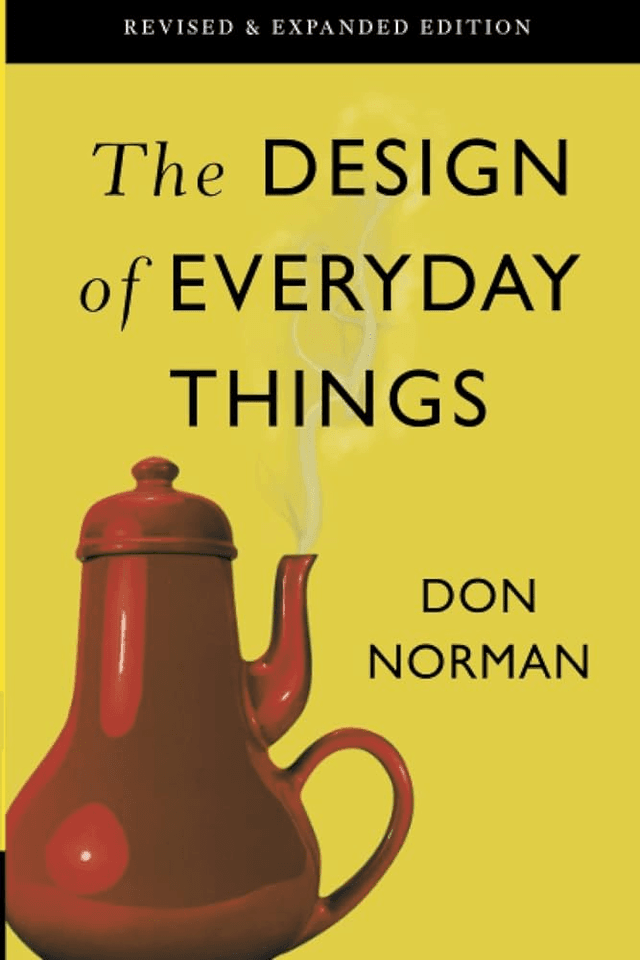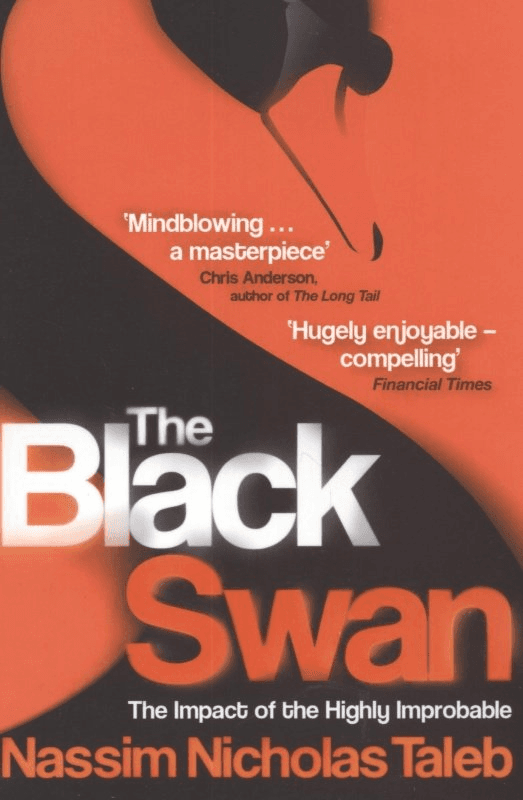The Black Swan vs. The Design Of Everyday Things
The Black Swan
"The Black Swan" by Nassim Nicholas Taleb is a seminal work that explores the profound impact of rare and unpredictable events, termed "Black Swans." Taleb argues that these events, which are often overlooked or underestimated, have massive consequences on our world. He highlights the limitations of traditional forecasting methods and emphasizes the need for resilience and adaptability in the face of uncertainty. Blending philosophy, economics, and personal anecdotes, Taleb provides a compelling critique of our understanding of risk and uncertainty. This book is essential for anyone interested in risk management, economics, and understanding the unpredictable nature of our world.
The Design Of Everyday Things
Even the smartest among us can feel inept as we fail to figure out which light switch or oven burner to turn on, or whether to push, pull, or slide a door. The fault, argues this ingenious -- even liberating -- book, lies not in ourselves, but in product design that ignores the needs of users and the principles of cognitive psychology. The problems range from ambiguous and hidden controls to arbitrary relationships between controls and functions, coupled with a lack of feedback or other assistance and unreasonable demands on memorization. The Design of Everyday Things shows that good, usable design is possible. The rules are simple: make things visible, exploit natural relationships that couple function and control, and make intelligent use of constraints. The goal: guide the user effortlessly to the right action on the right control at the right time. The Design of Everyday Things is a powerful primer on how -- and why -- some products satisfy customers while others only f...

Reviews
Reviews
| Item | Votes | Upvote |
|---|---|---|
| Insightful exploration of unpredictability | 1 | |
| Challenges conventional wisdom | 1 | |
| Rich with real-world examples | 1 |
| Item | Votes | Upvote |
|---|---|---|
| Complex and dense material | 1 | |
| Occasional digressions | 1 | |
| Some readers find Taleb's tone abrasive | 1 |
| Item | Votes | Upvote |
|---|---|---|
| No pros yet, would you like to add one? | ||
| Item | Votes | Upvote |
|---|---|---|
| No cons yet, would you like to add one? | ||
Frequently Asked Questions
'The Black Swan' by Nassim Nicholas Taleb is known for its profound insights into the nature of unpredictability and risk, making it highly impactful in fields like economics and risk management. It challenges conventional wisdom and provides a critical perspective on how we understand rare events. In contrast, 'The Design of Everyday Things' focuses on usability and design principles, aiming to improve everyday interactions with products. While both books are influential in their respective domains, 'The Black Swan' tends to resonate more with those interested in philosophical and economic implications of uncertainty.
'The Black Swan' offers a comprehensive exploration of risk and uncertainty, emphasizing the significance of rare events that can have massive consequences. It critiques traditional forecasting methods and encourages resilience. On the other hand, 'The Design of Everyday Things' does not focus on risk but rather on improving user experience through better design. Therefore, for understanding risk and uncertainty, 'The Black Swan' is the superior choice.
The writing style of 'The Black Swan' is often described as complex and dense, with a tone that some readers find abrasive. It blends philosophy with real-world examples, which can be challenging for some. In contrast, 'The Design of Everyday Things' is more straightforward and focuses on practical design principles, making it accessible to a broader audience. Thus, the two books have different writing styles that cater to different reader preferences.
'The Black Swan' by Nassim Nicholas Taleb is a seminal work that explores the profound impact of rare and unpredictable events, termed 'Black Swans.' Taleb argues that these events, which are often overlooked or underestimated, have massive consequences on our world. He highlights the limitations of traditional forecasting methods and emphasizes the need for resilience and adaptability in the face of uncertainty. Blending philosophy, economics, and personal anecdotes, Taleb provides a compelling critique of our understanding of risk and uncertainty. This book is essential for anyone interested in risk management, economics, and understanding the unpredictable nature of our world.
Pros of 'The Black Swan' include its insightful exploration of unpredictability, its challenge to conventional wisdom, and its richness with real-world examples. However, the cons are that the material can be complex and dense, there are occasional digressions, and some readers may find Taleb's tone abrasive.
Nassim Nicholas Taleb is a scholar, statistician, and former trader, known for his work on the role of randomness, probability, and uncertainty in financial markets and life. He is the author of several books, including 'The Black Swan,' 'Antifragile,' and 'Fooled by Randomness,' which explore the impact of rare and unpredictable events.
'The Design Of Everyday Things' is a book that explores the principles of good product design. It argues that many common usability issues stem from poor design that ignores the needs of users and cognitive psychology principles. The book emphasizes making controls and functions visible, using natural relationships, and applying intelligent constraints to guide users effortlessly.
The author of 'The Design Of Everyday Things' is Don Norman, a renowned cognitive scientist and usability engineer known for his contributions to the field of design.
'The Design Of Everyday Things' discusses several key principles of good design, including making things visible, exploiting natural relationships between controls and their functions, and using constraints intelligently to guide users towards the right actions.
'The Design Of Everyday Things' is considered a powerful primer on design because it provides clear, actionable guidelines for creating user-friendly products. It explains why certain designs frustrate users and offers practical solutions to make products more intuitive and satisfying to use.




















